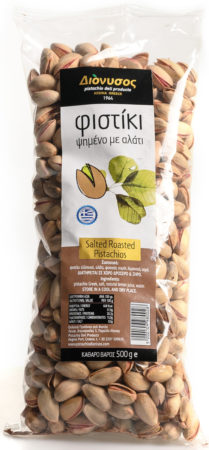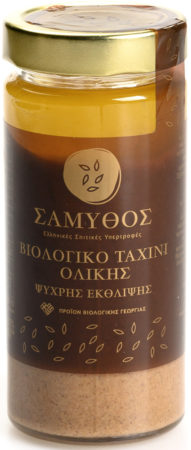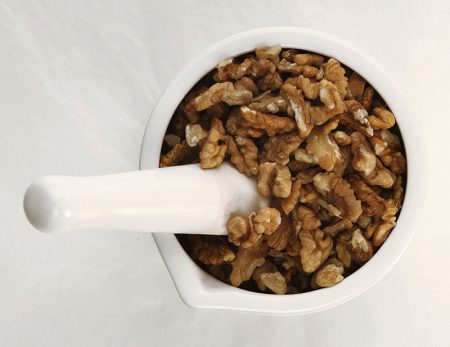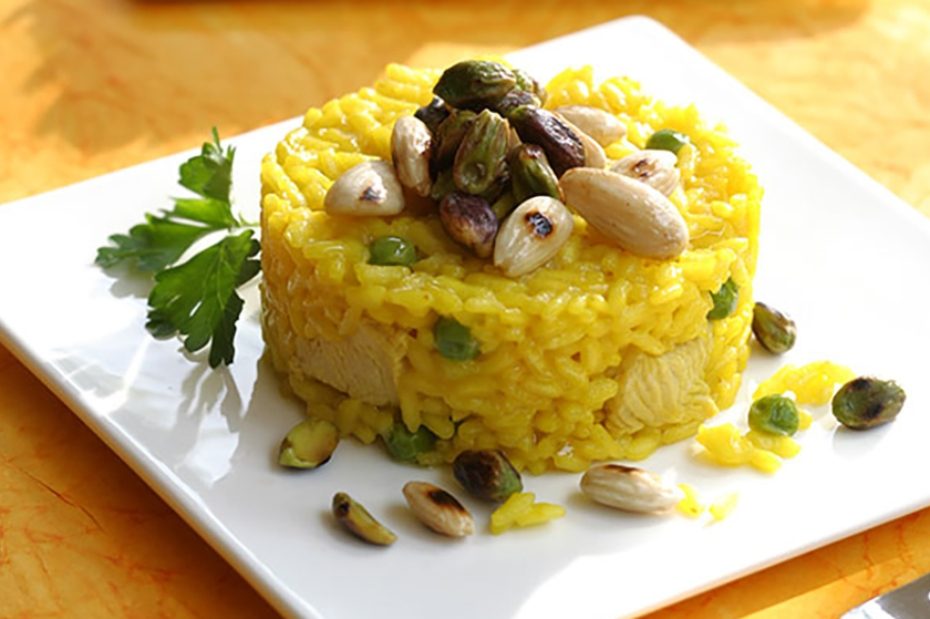
Aegina pistachios will change your life!
Nuts and seed have been an indispensable part of the Mediterranean-Greek Diet for millennia. They grow abundantly throughout Greece, and their high fat and protein content makes them both accessible and satiating—not to mention delicious! As we know well by now, nuts and seeds are immensely nutritious. In Greece they are enjoyed raw or roasted as a snack, a crunchy addition to salads or pilafs, and perhaps most commonly, in sweets. Here are a few of the most popular—and healthiest—nuts and seeds you’ll find in Greece.
Pistachios have been cultivated in Greece since the turn of the century on the Saronic Gulf island of Aegina. They flourished here so well that Aegina pistachios now have Protected Designation of Origin status, and they are widely considered to be some of the best pistachios in the world. I have to agree. Aegina has some of the driest conditions in Greece, so the pistachios produced are much smaller and have a more concentrated flavor than other pistachios. And despite being one of the lowest-calorie nuts, pistachios contain more antioxidants than almost all others [1]. Antioxidants help to fight all kinds of chronic and age-related diseases, and interestingly, antioxidants in pistachios are especially digestible, which makes them more easily absorbed into the body [2]. They make a great crunchy snack or salad topping, or even an interesting substitute for pine nuts in my pumpkin-pistachio pesto.
Unlike the newer pistachio, sesame seeds have an ancient Greek history. It’s been said that the

Samythos organic whole grain tahini
confection of sesame seeds and honey, pasteli, was the original “power bar” for the ancient Greeks. Sesame seeds are just as popular today, used as a topping for breads like lagana and koulouri, and even sweets. They’re also ground to a paste in tahini, which is substituted for olive oil during times of religious fasting. I’ve written before about the superfood qualities of sesame seeds and tahini, and they are truly impressive. The antioxidants in sesame seeds are so powerful that have been shown to have anti-cancer, anti-inflammatory, and even antibacterial properties. You can add a sprinkle of sesame seeds on pretty much anything, or try tahini as a spread on toast or a delicious sauce to top roasted vegetables like cauliflower steaks or char-broiled broccoli.

Walnuts, one of Nature’s aphrodisiacs.
Walnuts are perhaps one of the most popular nuts in Greek cuisine, and the ancient Greeks and Romans believed them to have medicinal properties. Now we know they were on to something because walnuts, like pistachios, abound in antioxidants and they are one of the best plant sources of omega-3 fatty acids [3]. Both of these nutrients contribute to fighting disease and promoting overall health. In Greece, walnuts are commonly paired with honey in a variety of sweets like karidopita, baklava, and and melomakarona. The protein, fats, and antioxidants in both the walnuts and honey make them more nutritious treat than typical American desserts. And walnut with honey truly is a match made in heaven. In tavernas throughout Greece, you’ll find that dessert is a bowl of thick, Greek yogurt topped with delicious raw honey and walnuts. For a savory bent, try some walnut-skordalia—an immunity boosting dip that combines garlic and walnuts.
And finally, almonds. Almonds are another ancient favorite—in fact, the Romans used to refer to them as “Greek nuts” because they were so popular. Like walnuts, they are especially prevalent in Greek sweets, which makes enjoying dessert a little more guilt-free. Almonds are good sources of healthy fats, fiber, and protein and very high in antioxidants, especially the skin. They’ve been linked to all kinds of health benefits like reduced blood pressure, cholesterol, and even weight loss [4]. They take center stage in quite a few Greek sweets like ergolavi, amygdalota, kourabiethes, and revani, which typically contain very little added fat and dairy. As in these desserts, almonds make a great “flour” when ground, so they can be a good substitute for white flour, which is mostly simple carbohydrates. For something savory, I like to add them (and pistachios) to a saffron rice pilaf.
As you see, nuts and seeds have been a staple in the Greek diet for ages. They’ve earned their place by being a versatile, nourishing addition to a wide range of dishes. Make them a part of your daily diet along with other health-promoting habits of the Mediterranean lifestyle.
Check out my 7-Day Mediterranean Diet Meal Plan
[1] https://www.ncbi.nlm.nih.gov/pubmed/16825686
[2] https://pubmed.ncbi.nlm.nih.gov/23237656/
[3] https://www.healthline.com/nutrition/benefits-of-walnuts#section7).
[4] https://www.healthline.com/nutrition/9-proven-benefits-of-almonds#section10






